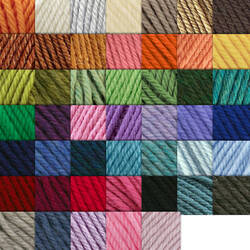With so many of our customers creating handmade sweaters, blankets, hats and mitts with
Cascade 220 Superwash Wool Yarn and [Sorry, item discontinued or temporarily out of stock] we couldn’t help but share these valuable tips on caring for Superwash wools from our valued supplier,
Cascade Yarns. We thank them for the information and hope this helps insure your handmade treasures are well cared for and become heirlooms for future generations to love and appreciate.
Many knitters and crocheters enjoy working with our Superwash yarns because they are easy care. It is nice to know that you can knit a child a garment and not have to worry about mom ruining it in the washing machine. Or do you? Superwash wool is easy care-not zero care. Here are a couple of pointers for caring for garments made from Superwash wool:
- Use ample water. Friction is the enemy of any natural fiber, especially merino wool. Our 220 Superwash® Sport, 220 Superwash® Aran and 128 Superwash are all 100% Superwash merino wool which has a short fiber staple length which give the yarn incredible softness, but also makes it more susceptible to pilling. A lot of energy efficient washers use low levels of water. Large projects need ample water to allow the piece to swish and not rub up against itself repeatedly, causing undue friction. A mesh bag is also helpful in preventing friction.
- Use the right soap. Superwash yarn is safe for the washing machine, but not necessarily for all of the chemicals found in regular laundry detergent. Many laundry detergents contain enzymes to attack protein based stains. Wool is a protein based fiber, which means the enzymes in your detergent can harm the wool. Instead of a conventional detergent, we recommend using a soap that is specifically designed for use on wool. Most local yarn shops carry some type of soap appropriate for use on wool.
- Use the dryer. Superwash yarn has been processed to remove the scales on the fibers. These naturally present scales are responsible for the adhering of the fibers during felting. Without the scales the fibers lose their gripping properties. When yarn is wet, it becomes heavy and in the case of Superwash wool it will stretch if given the opportunity. Superwash wool springs back into shape in the dryer. We strongly recommend that you tumble dry your projects to prevent overstretching.
|
|
|


